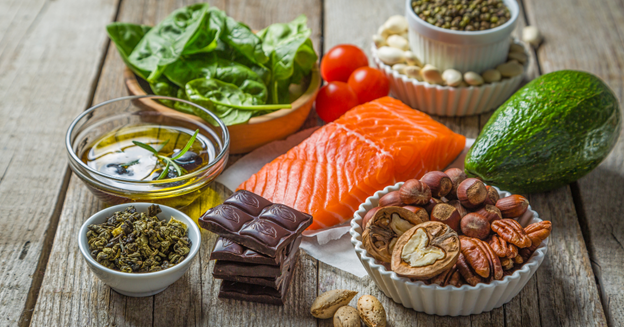This article is courtesy of Bombs Away in San Mateo
If you’re a dog lover like me, you understand the importance of providing your furry friend with the best care, including a balanced diet. But the world of canine nutrition can be a confusing one, filled with myths and misconceptions. In this blog post, we’re going to debunk some common myths about dog nutrition and offer guidance on how to provide a healthy and balanced diet for your four-legged companion.
Myth #1: “All Dog Food is Created Equal”
One of the most common misconceptions is that all dog food is created equal. In reality, the quality of dog food can vary significantly. When choosing dog food, it’s essential to look for options that list real meat as the first ingredient and avoid those that contain fillers like corn and soy. High-quality dog food may be more expensive, but it’s worth the investment in your pet’s health.
Myth #2: “Dogs Can Eat Anything”
While dogs have more robust digestive systems than humans, it doesn’t mean they can eat anything. Certain human foods can be toxic to dogs, such as chocolate, grapes, onions, and garlic. It’s crucial to educate yourself on what foods are safe for your dog and which ones to avoid. When in doubt, consult your veterinarian for guidance.
Image Credit: oleksandranaumenko
Myth #3: “Raw Diets are Always Healthier”
The raw food diet trend for dogs has gained popularity in recent years, with some proponents claiming it’s the healthiest option. While raw diets can have benefits, they also come with risks, such as bacterial contamination and nutrient imbalances. Before switching your dog to a raw diet, consult with a veterinarian or canine nutritionist to ensure it’s the right choice for your pet.
Myth #4: “Grain-Free Diets are Better”
Another prevalent myth is that grain-free diets are superior for dogs. In reality, grains like rice and oats can be a valuable source of carbohydrates and fiber for dogs. Some grain-free diets may even be linked to heart problems in certain breeds. Always consult with your vet before making significant dietary changes.
Myth #5: “Dogs Need a Varied Diet Daily”
While variety in your dog’s diet can be beneficial, it’s not necessary to provide a different meal every day. Dogs thrive on consistency, and sudden changes in their diet can upset their stomachs. Stick to a well-balanced dog food that meets their nutritional needs and supplement with occasional treats and safe human foods in moderation.
Myth #6: “Dogs Can’t Be Vegetarian”
While dogs are primarily carnivores, they can adapt to a vegetarian or vegan diet with proper planning. If you choose to feed your dog a plant-based diet, consult with a veterinarian or canine nutritionist to ensure they receive all the necessary nutrients. It’s crucial to provide a well-balanced diet that meets their nutritional requirements.
Image Credit: pixelshot
Myth #7: “Puppies and Adult Dogs Should Eat the Same Food”
Puppies have different nutritional needs than adult dogs due to their rapid growth and development. It’s essential to feed puppies a specially formulated puppy food until they reach adulthood. Adult dogs have different requirements, and feeding them the right food at each life stage is crucial for their health.
Myth #8: “Dogs Should Eat On a Strict Schedule”
While some dogs thrive on a strict feeding schedule, others may do better with free feeding. The key is to monitor your dog’s weight and adjust their food intake accordingly. Make sure fresh water is always available, regardless of your feeding method.
In conclusion, providing your dog with a healthy and balanced diet is crucial for their well-being. By debunking these common myths about canine nutrition, you can make informed decisions about what to feed your beloved pet. Remember that every dog is unique, so consulting with a veterinarian or canine nutritionist can help tailor a diet that meets your dog’s specific needs. Your furry friend will thank you with wagging tails and boundless energy for years to come.








